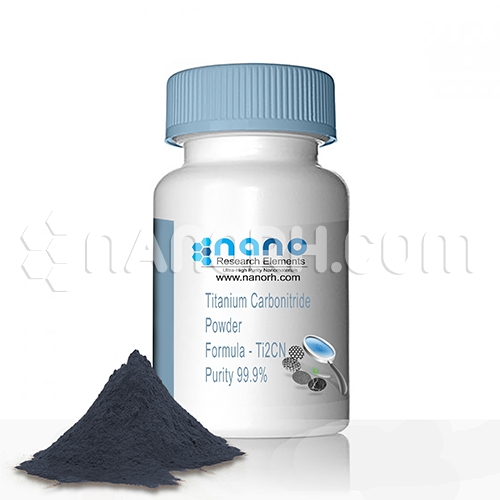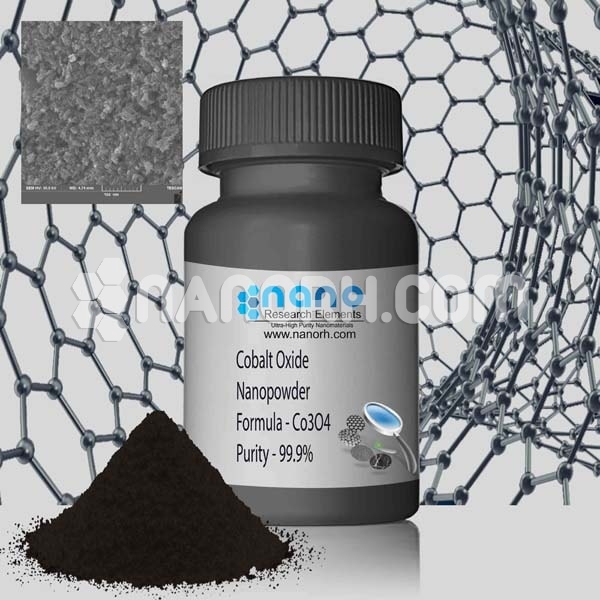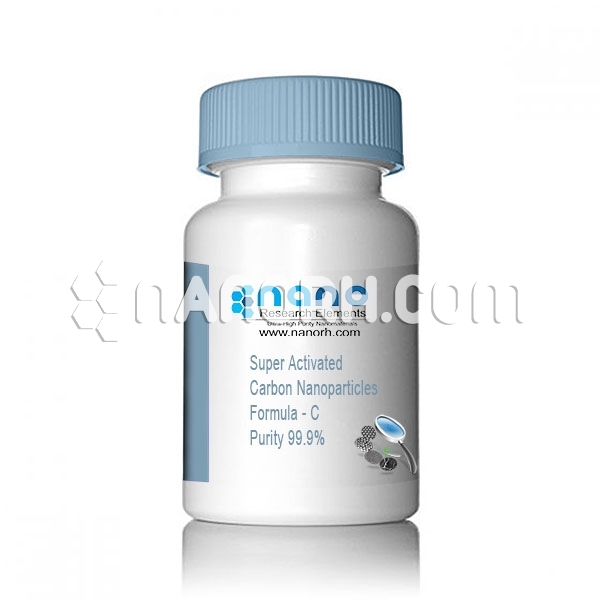| Titanium Carbonitride Nanoparticles | |
| Product No | NRE-5234 |
| CAS No. | 12654-86-3 |
| Formula | Ti2CN |
| Density | 5.08 g/cm3 |
| APS | <100 nm (Can be Customized) |
| Purity | 99.9% |
| Form | Powder |
| Molecular Weight | 121.751 g/mol |
| Certificate Of Analysis | |
| Ti | 78.6% |
| C | 9.8% |
| N | 11.5% |
| Mn | 0.03% |
| Cr | 0.02% |
| S | 0.02% |
| Sn | 0.03% |
Titanium Carbonitride Nanoparticles
Introduction
Titanium Carbonitride (TiCN) is a compound made from titanium (Ti), carbon (C), and nitrogen (N). It is a member of the family of transition metal carbides and nitrides and is known for its excellent hardness, high melting point, and good chemical stability. In nanoparticle form, TiCN exhibits unique properties due to its small size, high surface area, and enhanced reactivity compared to its bulk counterpart.
Applications:
Coatings and Surface Hardening:
TiCN nanoparticles are widely used in surface coatings for cutting tools, wear-resistant parts, and other high-stress components. The high hardness of TiCN enhances the durability and longevity of the coated surface, making it highly effective in aerospace, automotive, and manufacturing industries.
PVD (Physical Vapor Deposition) and CVD (Chemical Vapor Deposition) are commonly used methods for applying TiCN coatings onto steel, aluminum, and titanium substrates to improve wear resistance, hardness, and overall performance.
Biomedical Applications:
TiCN nanoparticles are increasingly being investigated for use in biomaterials, such as implants and prosthetics. Their biocompatibility, wear resistance, and strength make them suitable for dental implants and orthopedic applications.
TiCN coatings can be used to improve the performance of bioimplants, offering better durability and resistance to corrosion compared to other coatings like titanium nitride (TiN).
Electronics:
Due to their combination of electrical conductivity and hardness, TiCN nanoparticles are used in electronic components, including microelectronics and semiconductors. They are useful in protective coatings for components exposed to high levels of wear, such as connectors, switches, and circuit boards.
TiCN also has potential applications in optical devices, where its surface properties can be engineered to manipulate light and enhance device performance.




